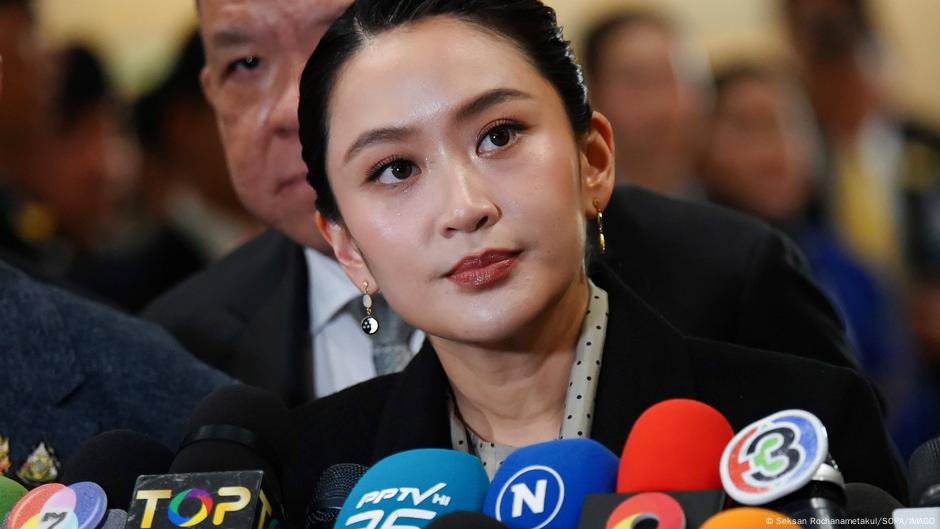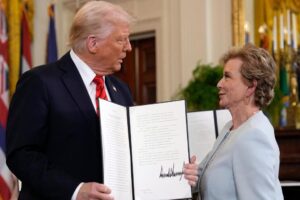
The Prime Minister of Thailand, Paetongtarn Shinawatra, has been suspended by the constitutional court following a controversial leaked phone call with a senior Cambodian politician. The suspension, decided by a 7 to 2 vote from the judges, comes as Paetongtarn faces accusations of dishonesty and ethical breaches from 36 senators. She now has 15 days to present evidence in her defense.
Paetongtarn’s suspension follows growing dissatisfaction over her handling of a border dispute with Cambodia, which escalated into violence in May, resulting in the death of a Cambodian soldier. The leaked phone call, dated June 15, with Cambodian Senate President Hun Sen, revealed her criticism of a Thai army commander, a sensitive issue in a nation where the military holds significant influence.
Political Turmoil and Public Reaction
Despite her apology and explanation that her remarks were a negotiating tactic, the leaked call has sparked public outrage. Thousands of conservative and nationalist-leaning protesters gathered in central Bangkok over the weekend, demanding her resignation. “I only thought about what to do to avoid troubles, what to do to avoid armed confrontation, for the soldiers not to suffer any loss,” Paetongtarn stated, emphasizing her intentions to prevent negative outcomes.
In the wake of the suspension, Deputy Prime Minister Suriya Juangroongruangkit is poised to step in as acting prime minister. “Government work doesn’t stop, there is no problem,” remarked Tourism Minister and Pheu Thai Party Secretary-General Sorawong Thienthong to Reuters. “Suriya will become caretaker prime minister.”
Government Stability in Question
The government now faces a precarious situation, with its majority hanging by a thread. The fallout from the leaked call has already led to a key party withdrawing from Paetongtarn’s coalition, threatening a no-confidence vote. Earlier, King Maha Vajiralongkorn had endorsed a cabinet reshuffle that would have seen Paetongtarn take on the role of culture minister alongside her prime ministerial duties. Her suspension, however, casts uncertainty over her ability to assume this position.
Paetongtarn has expressed her willingness to comply with the judicial process, though she voiced concerns about potential disruptions to her work. This is not her first encounter with allegations of ethical breaches; she is also under investigation by Thailand’s Office of the National Anti-Corruption Commission in a separate case.
Historical Context and Regional Implications
The suspension of Paetongtarn Shinawatra is reminiscent of past political upheavals in Thailand. Her predecessor was removed by the Constitutional Court last year over similar ethical concerns. Moreover, her father, Thaksin Shinawatra, a former prime minister, was ousted in a military coup in 2006, highlighting the ongoing tension between Thailand’s political and military establishments.
Internationally, the incident has drawn attention, though many countries have refrained from commenting directly. A spokeswoman for the Chinese Foreign Ministry stated, “As a friendly neighbor, we hope that Thailand will maintain stability and development,” emphasizing the importance of regional stability.
Looking Ahead
The coming weeks will be critical for Paetongtarn as she gathers evidence to defend her position. The political landscape in Thailand remains volatile, with potential shifts in power dynamics depending on the outcome of the court’s investigation. Observers will be closely watching how these developments unfold and what they mean for Thailand’s future governance and regional relations.







